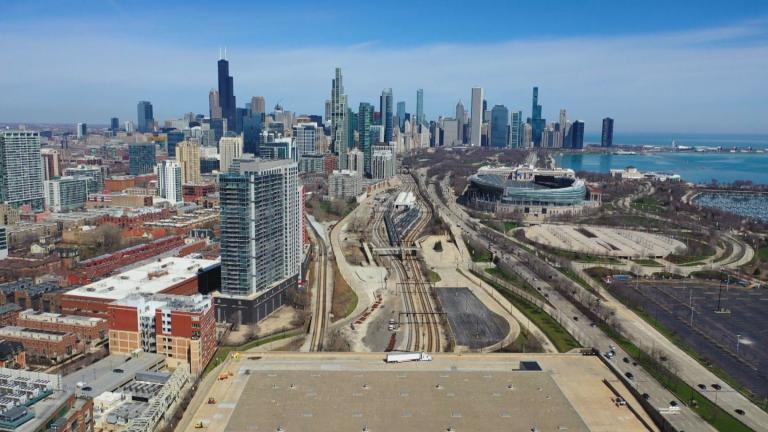Under a new pitch from Mayor Brandon Johnson, the city of Chicago could be running a grocery store in its future.
Johnson is pitching the creation of a city-owned grocery store in an effort to reverse historic disinvestment in food access on the South and West sides. This process is starting with a feasibility study alongside the Economic Security Project.
Chicago would be the first big city to offer the program, said S. Mayumi “Umi” Grigsby, chief of policy for the city of Chicago. It’s not just a grocery store – it’s an overall strategy around food retail and increasing access working alongside their Food Equity Council, she added.
“We hope to lean on them to be able to give that perspective of what it really does look like to increase access and to ensure that the agency and ownership remains in the community,” Grigsby said.
Liz Abunaw, owner of Forty Acres Fresh Market, has been trying to get a physical grocery store in Austin for years. Her current issue is getting a construction permit, citing a lack of communications between different city agencies.
There’s a mass exodus of dollars out of predominantly Black communities into wealthier, predominantly White communities because of people traveling for food access, Abunaw said. While having a resident open up a grocery store in their own neighborhood is major – that alone won’t reverse decades of behaviors for years, she added.
“We want that in our community,” Abunaw said.
She said the city could build on commercial food programs – like moving the city markets program into new neighborhoods – before the city starts working on a complex project like grocery retail.
Jennifer Stewart, senior program steward with Grow Greater Englewood, said this move could create a more expedited pathway for residents to have a say in what they want in their community for food.
It’s a sentiment that felt in Englewood where Whole Foods shut down last year to be replaced by the controversial Save-A-Lot.
She said the move from the two grocers made residents feel like didn’t deserve access to healthier foods.
“We are looked at, in Englewood’s area, as not being as valuable,” Stewart said.








